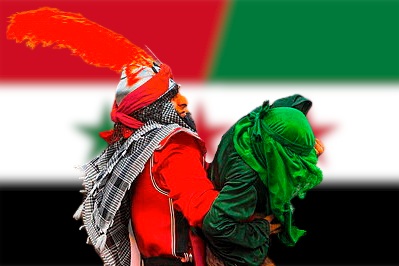Safar 1 marks the arrival of the captives from the family of Imam Hussain (AS) and his companions to the capital of the Umayyad Caliphate, Damascus, which is located in present-day Syria. This event occurred after a challenging and exhausting journey from Kufa to Syria, which lasted for several days.
After the Battle of Karbala and the martyrdom of Imam Hussain (AS) and his companions on the 10th of Muharram, the surviving members of the Imam’s camp, including women and children, were taken as captives by the forces of Yazid ibn Muawiya.
During their journey from Kufa to Damascus, the captives faced immense hardships and were subjected to humiliation and mistreatment by their captors. The Umayyad forces sought to showcase their victory over the opposition to Yazid’s rule by publicly displaying the prisoners as they moved through different regions.
Upon their arrival in Damascus, the captives were paraded through the streets, and their plight was intended to serve as a warning to anyone who would dare challenge Yazid’s authority.
In Damascus, the family members of Imam Hussain (AS) and their companions continued to face difficult conditions and were held captive under the watch of the Umayyad regime. Despite their suffering, they remained steadfast in their faith and commitment to the principles upheld by Imam Hussain (AS).
The tragic events following the Battle of Karbala, including the captivity of the survivors, are commemorated during the month of Muharram and Safar, especially by Shia Muslims, who mourn the loss and sacrifice of Imam Hussain (AS) and his companions. The legacy of Karbala continues to inspire millions of people worldwide, reminding them of the enduring principles of justice, truth, and standing against oppression and tyranny.

